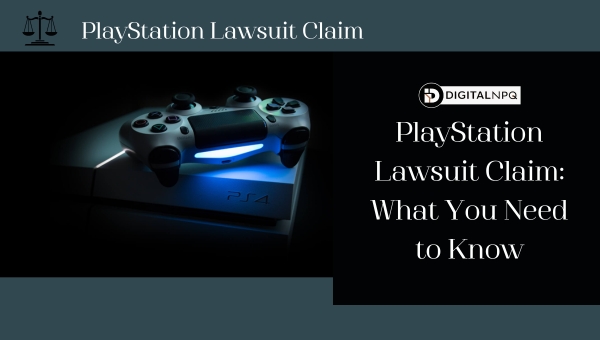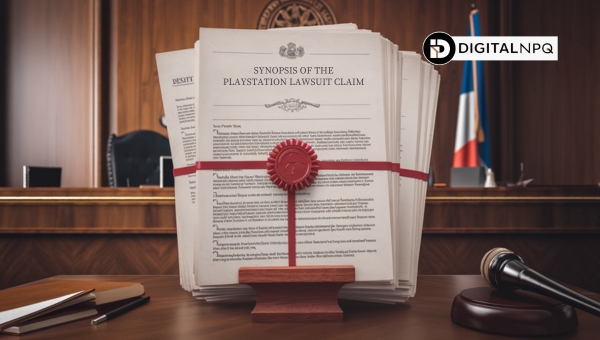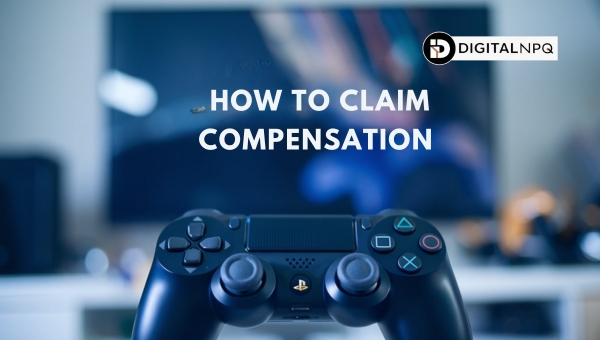PlayStation Lawsuit Claim: What You Need to Know

The PlayStation lawsuit, which claims Sony overcharged millions of UK customers for digital transactions, has drawn attention. This article explores the legal foundation, possible user effects, and compensation claims.
You will learn who is entitled to compensation, the specifics of the settlement, and the wider ramifications for the gaming industry by continuing to read. Gaining an understanding of these components will enable you to efficiently navigate this intricate topic.
Let’s delve deeper and examine the important information related to this complaint.
A synopsis of the PlayStation lawsuit claim
The PlayStation lawsuit involves a class-action claim against Sony, alleging that the company has overcharged UK customers for digital games and in-game purchases through the PlayStation Store.

This lawsuit, led by consumer rights activist Alex Neill, represents around 8.9 million users. The claim suggests that Sony exploited its dominant market position, resulting in overcharges estimated at £5 billion over six years, from August 19, 2016, to August 19, 2022.
Key Allegations and Legal Basis
The lawsuit is grounded in competition law, which aims to prevent companies from misusing their market dominance.
The key allegations include:
- Unfair trading conditions: Sony allegedly imposed unfair terms on game developers.
- Excessive pricing: The claim states that Sony set high prices for digital games and in-game content.
- Consumer protection violations: It is claimed that these practices breached UK regulations designed to protect consumers from unfair pricing and competition.
Breach of Competition Law
The lawsuit argues that Sony has a near-monopoly on the sale of digital games and add-on content for PlayStation consoles.
This market power allows Sony to enforce stringent terms on developers and take a 30% commission on all digital purchases. Such practices are said to inflate prices, making them higher than the actual cost of providing these services.
The claim highlights several points:
- Market dominance: Sony’s control over the digital gaming market is significant, limiting competition.
- Developer terms: Sony allegedly enforces strict conditions on developers, stifling their ability to set competitive prices.
- Commission fees: The 30% commission on digital purchases is seen as excessive, contributing to higher consumer prices.
- Inflated costs: The prices charged to consumers are claimed to be disproportionate to the costs incurred by Sony, leading to unjustified overcharges.
Overcharging Consumers
The lawsuit emphasizes that consumers have been unfairly overcharged due to Sony’s pricing strategies. It suggests that:
- Excessive prices: The prices for digital content are higher than necessary, exploiting loyal customers.
- Lack of competition: Sony’s practices limit competition, preventing alternative pricing options.
- Consumer exploitation: The claim argues that the pricing strategies have taken advantage of consumers’ loyalty to the PlayStation brand.
These allegations, if proven, could have significant implications for Sony and the broader digital gaming market. The outcome of this lawsuit may influence how digital content is priced and sold in the future.
Also Read: What is the 1120 Tax Form? Everything You Need to Know
Potential Impact on PlayStation Users
The PlayStation lawsuit claim has significant implications for its users. If successful, it could lead to compensation for millions of customers who overpaid for digital games and in-game content. Let’s dive into who is eligible and the specifics of the settlement amounts and payment dates.

Eligible Compensation
Determining who is eligible for compensation is crucial for affected users. Here are the key points:
- Time Frame: Users who purchased digital games or in-game content through the PlayStation Store between August 19, 2016, and August 19, 2022, are eligible.
- Location: This eligibility is specific to consumers in the UK.
- Proof of Purchase: Claimants must provide evidence of their transactions, such as receipts or transaction records from the PlayStation Store.
Settlement Amount and Payment Dates
If the lawsuit results in a favorable outcome for the plaintiffs, the following details will be essential for claimants:
- Compensation Range: Eligible users could receive compensation ranging from £67 to £562, excluding any interest.
- Payment Dates: The exact payment dates will be determined based on the lawsuit’s progression and any settlements with Sony.
Understanding these aspects can help PlayStation users prepare for potential compensation and navigate the claims process effectively.
Also Read: EITC Refund Date 2024: Maximize Your Tax Refund
How to Claim Compensation?
Filing a PlayStation lawsuit claim can seem overwhelming, but we’ve got you covered with a straightforward guide. Knowing the necessary forms and documentation is crucial for a smooth process.

Additionally, understanding the steps for filing your claim will ensure you don’t miss any essential details. Let’s dive in to make this process as seamless as possible.
Necessary Forms and Documentation
To file a PlayStation lawsuit claim, you’ll need to gather several forms and pieces of documentation. These are essential to prove your eligibility and support your claim:
- Proof of Purchase: Receipts or transaction records from the PlayStation Store.
- Identification: A valid form of ID, such as a driver’s license or passport.
- Claim Form: A specific form provided by the legal representatives handling the lawsuit.
- Contact Information: Current and accurate contact details, including your address and email.
Steps for Filing Your Claim
Filing your claim involves a few straightforward steps. Follow these to ensure your claim is processed correctly:
- Check Eligibility: Confirm that you made purchases during the specified claim period (from August 19, 2016, to August 19, 2022).
- Gather Documentation: Collect all necessary proof of purchase, identification, and any other required documents.
- Complete Claim Form: Fill out the required claim form provided by the legal team managing the lawsuit.
- Submit Your Claim: Follow the instructions for submitting your claim, making sure all documentation is included.
- Stay Updated: Keep an eye on communications from the legal representatives for updates on the status of your claim and any further instructions.
By carefully following these steps and ensuring you have all the necessary documentation, you can make the process of claiming compensation as smooth as possible.
Broader Implications
The PlayStation lawsuit claim against Sony could have far-reaching effects beyond just the immediate parties involved. This section will delve into how this lawsuit might reshape the landscape of digital console storefronts and influence future gaming market pricing.
Effect on Digital Console Storefronts
Analyzing the potential impact on digital console storefronts, this lawsuit could lead to significant changes in how these platforms operate.
If Sony is found liable, other companies might be forced to reconsider their own business practices to avoid similar legal challenges.
- Increased Transparency: Digital storefronts may need to offer more transparency regarding their pricing structures and commissions.
- Fairer Terms for Developers: Developers could benefit from more equitable terms, allowing them to price their games and add-ons more competitively.
- Consumer-Friendly Policies: Platforms might adopt more consumer-friendly policies to rebuild trust and avoid regulatory scrutiny.
Future of Gaming Market Pricing
The lawsuit also has the potential to influence future gaming market pricing, setting precedents that could benefit consumers and developers alike.
- Lower Prices: A successful claim could encourage lower prices for digital games and in-game content, benefiting consumers.
- Regulatory Oversight: Increased regulatory oversight might ensure fair pricing practices across the gaming industry.
- Competitive Market: The gaming market could become more competitive, with companies striving to offer better value to attract customers.
By addressing these broader implications, it is evident that the PlayStation lawsuit claim could bring about pivotal changes in the digital gaming industry.
FAQs
How do I file a claim with PlayStation?
To file a claim, you need to provide proof of your purchases, such as receipts or transaction records from the PlayStation Store. Complete the required forms provided by the legal representatives and submit them as instructed.
Am I eligible for PlayStation compensation?
You are eligible if you purchased digital games or in-game content through the PlayStation Store between August 19, 2016, and August 19, 2022, and are based in the UK. Make sure to have proof of these transactions.
What are PlayStation chargebacks?
PlayStation chargebacks occur when a transaction is reversed, usually due to a dispute. This can happen if you believe you were incorrectly charged or if there’s unauthorized use of your payment method.
Conclusion
In conclusion, the PlayStation lawsuit claim highlights significant concerns surrounding competition law and consumer rights in the digital gaming market. The allegations against Sony for overcharging consumers and exploiting their market position may lead to crucial changes in how digital storefronts operate.
If successful, this lawsuit could pave the way for fairer pricing and better practices within the gaming industry. It’s important for PlayStation users to stay informed about their eligibility for compensation and the steps necessary to file their claims.
For more insightful articles on consumer rights and gaming industry updates, be sure to explore more blogs on our site!
